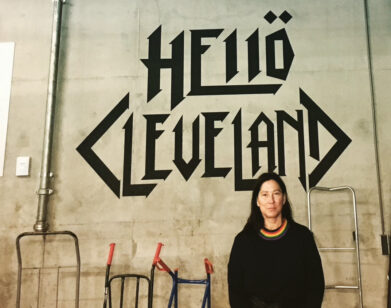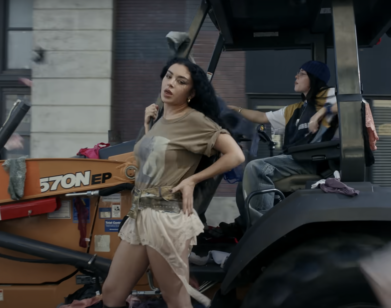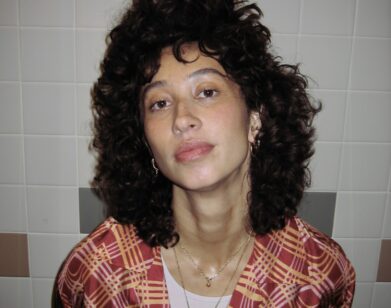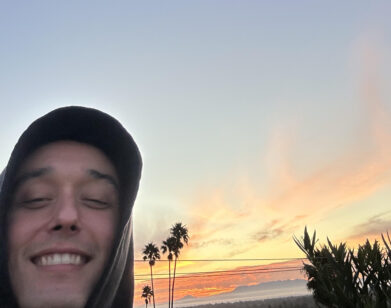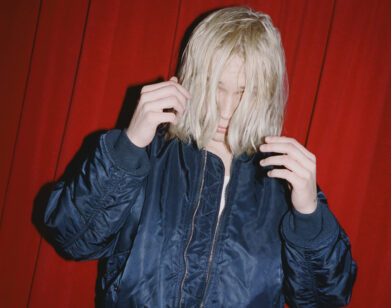Discovery: Georgia
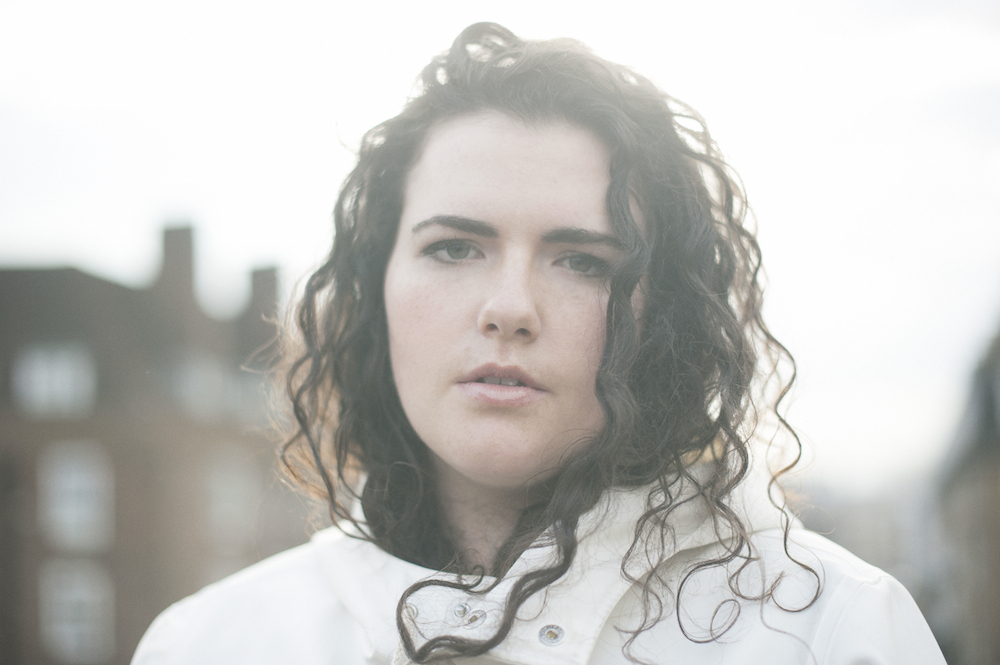
If you were to take the bold pop of M.I.A, add in the punk aggression of Death Grips, and blend that with the otherworldly atmospherics of Fever Ray, then you might come up with something close to the sound of North Londoner Georgia Barnes. Going by her first name only, the 25-year-old’s eponymous debut album (out today, August 7, via Domino Records) is raw and gritty, spitting out a vision of London’s industrial, unsteady nature through glitchy synths, relentless drum beats, personal narratives, and vocal fluctuations.
“I’m really pleased you picked up on that, actually,” Georgia says when we mention London. “It’s totally inspired by London. I’ve never left the city—I’m born and bread. I identify with London, not with any particular thing, but with the struggle for living and the multicultural vibe.”
Through her former roles as a session drummer for the likes of Kwes, Kate Tempest, and Juce, Georgia experienced the dynamic sonic palettes throughout London, although she already had a thirst for world music thanks to her dad’s record collection. Georgia studied Ethnomusicology at SOAS, University of London’s School of Oriental and African Studies, where she learned to play the Kora, a West African harp. For her debut, Georgia wrote, recorded, and produced the complex instrumentation heard on each track within her home studio. For example, on “Move Systems,” Balinese Gamelan drums provide distinct momentous beats and album highlight “Kombine” opens with a cassette-tape sample of South Asian Qawwali rhythms.
Before her debut drops, she will play a record release show tonight at Baby’s All Right, and we spoke to the multi-instrumentalist about pop, conformity, and Brazilian pygmies.
AGE: 25
HOMETOWN: North London
GROWING UP: My household was a very musical household. My dad is a musician and music played a big part in my mum’s life. I think I was about seven when I sat down at the drum kit. It was a bit earlier when I picked up a guitar and started to play in front of the tele, just mimicking Jarvis Cocker or someone like that from the ’90s. Both my mum and dad encouraged me to go down that path.
My dad bought me a cheap four-track recorder when I was 16, which gave me an opportunity to learn how to record instruments onto tape, like the old school method. So I just got obsessed with that and would be in my bedroom for a long time, experimenting, learning songs, and recording them.
SESSION DRUMMING: It’s hard, it’s really hard to be just a session drummer, but it helped me massively. When I started playing with Kwes I was 19. I knew that I wanted to do my own music, but it wasn’t clear in my head what I wanted to create. Playing with friends, especially Kwes, I was exposed to all these different sounds that I wouldn’t have been if it weren’t for session drumming, and as an artist himself, Kwes was massively inspirational to me. I’ve learned so much from Kate Tempest too; it was really incredible to be involved in a project where you felt it was just on the cusp of something. All the projects I’ve played with have had a massive impact in shaping some kind of idea in my head of where I want to go.
ETHNOMUSICOLOGY: I’ve always been fascinated by music from other countries, particularly African and South East Asian music. I was exposed to it as a kid; my dad was very influenced by those kinds of records and had a very big world music collection. I always felt an affiliation with it and wanted to learn more about music in other cultures. I found a course at SOAS in London where you could actually study it, called Ethnomusicology. I was quite a pop kid, you know—I was a chart kid, listening to all of that stuff, that Americanized music, but I wanted to delve a bit deeper and it was really incredible. There were lectures about pygmies in Brazilian forests making instruments out of bamboo and all that sort of stuff.
CONFORMITY: I am always drawn to the artists who are a bit boundary breaking and who use producers that have something a little bit different about them. It’s interesting to push the boundaries, introduce listeners to new forms, and shake their minds. The Knife‘s Shaking The Habitual does that. I’ve always been around musicians who are very true to themselves but at the same time want to do something a bit different. I’ve always been interested in taking the pop structure of songs and mixing it with something with a bit more of an electronic, dark feel. So all the songs on this album are quite poppy in length, but perhaps within that it’s a bit “twisted future pop.”
REBEL POP: When Madonna came along and was using Nile Rodgers and disco, I think it was a real bold move. I think it created something really interesting, a new form of pop music. There’s also someone, like Kate Bush, who comes along and changes the pop game, or Prince. I’m a massive pop fan! And, ashamedly—well, not ashamedly—I was a massive Spice Girls fan. I also went to see Britney Spears at Wembley when I was 12 or 13.
THE SONG “BE ACHE”: “Be Ache” I wrote before Christmas last year. I was in the studio and really inspired by Yeezus and all the producers on there. I was listening to a lot of Evian Christ and Arca, and a French techno guy called Gesaffelstein. I wanted to get a bit of that minimal, sparse, dark, electronic vibe with quite a momentous heavy beat. I was just experimenting around and it was the first thing I think I did where I thought, “This is my sound!” It was also the first time I’d played something to people and they were like, “This is really good! Let’s release it.” I went on the Internet it had kind of exploded. It gave me a lot of attention—the right kind of attention as well.
ON FEAR: It was quite isolating being on my own all the time at the studio. Although I was playing drums with other people, I didn’t really know what kind of world I was entering or how it was going to be received. I think other people don’t get as anxious. With me, I always did know what I wanted to do but it took me a while to develop and find the momentum, you know? To be ballsy enough.
I watched the Amy documentary recently and she was really not afraid. I have a bit of that, but I needed the people around me to give me a bit of a kick up the arse and get me into gear. If it weren’t for them, I’d still be thinking and experimenting in the studio.
GEORGIA IS OUT AUGUST 7 VIA DOMINO RECORDS. FOR MORE ON THE MUSICIAN, VISIT HER FACEBOOK.

